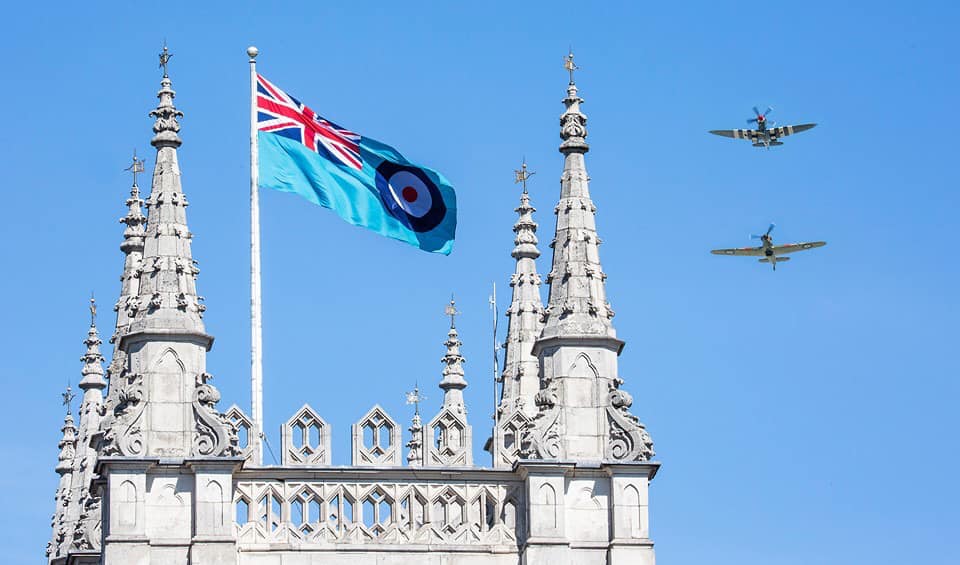 80th anniversary of the Battle of Britain
80th anniversary of the Battle of Britain
Parallels were drawn between the heroism of The Few and modern-day NHS staff and key workers who face a “fight against an invisible army” at a small and intimate service at Westminster Abbey on Sunday marking the 80th anniversary of the Battle of Britain.
The annual Sunday service usually attracts around 2,200 people to the London landmark as the UK commemorates the first battle in history fought entirely in the air during the Second World War.
This year’s service, which is the venue’s first since the lockdown, saw attendance significantly reduced and social distancing measures in place for 79 invited guests.
Chairs for the guests, who were all wearing a face covering, were placed at the transepts of the church close to the altar.
Each chair was spaced out two metres apart to allow social distancing, with protective plastic screens separating the north and south transepts.
Prime Minister Boris Johnson was among the guests at the service, as well as Labour leader Sir Keir Starmer and Marshal of the Royal Air Force Lord Stirrup, representing the Prince of Wales.
Mr Johnson, along with the Chief of the Air Staff, Air Chief Marshal Mike Wigston, gave a reading, while an address was given by the Chaplain in Chief, the Venerable Air Vice Marshal John Ellis, who honoured NHS staff and key workers in the “fight against an invisible army”.
He drew comparisons between the Battle of Britain and the coronavirus pandemic, stating: “Once again there have been sacrifices made, often quiet, often humble, unnoticed by many.
“Although starkly different events, each of them has two things that are so important for our humanity — service and value. We have seen the selfless giving to a greater cause.”
Led by Dr David Hoyle, the Dean of Westminster Abbey, the service included an act of remembrance, during which the Battle of Britain Roll of Honour bearing the names of 1,497 pilots and aircrew killed or mortally wounded in the battle was borne through the church.
This was followed by a procession of flags, readings, prayers and music by the Band of the Royal Air Force Regiment and singing by the church choir.
A statement from the organisers said the service was “reduced in stature but not in spirit”.
A flypast took place after the service, with a Hurricane and three Spitfires flying over central London.
Around 50 members of the public gathered outside in the sunshine at Westminster Abbey to watch.
The Battle of Britain was a major air campaign fought in the skies over the UK in 1940, and although the battle took place between July and October, September 15 saw the British Royal Air Force (RAF) gain a decisive victory over the Luftwaffe in what was Nazi Germany’s largest daylight attack.
Some 1,120 Luftwaffe aircraft were sent to attack London, but were repelled by just 630 RAF fighters — and two days later Hitler postponed his plans to invade Britain.
Minster-and-AC.jpg


